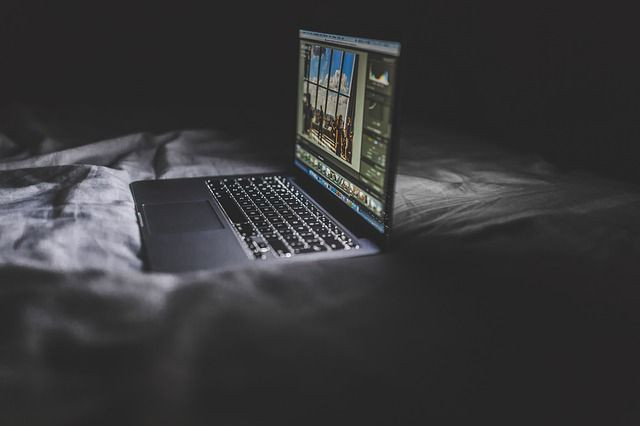Blue Light And Sleep Cycle: How To Limit LED Lighting From Electronic Devices For Melatonin Production

The sun is the major source of lighting for us during the day, while LED lighting illuminates our nights, specifically in the bedroom. Constantly basking in light, whether from light bulbs or electronic devices, can throw off our body clock, resulting in poor sleep. Blue light emission at night manipulates the production of sleep hormone melatonin, leading the brain to believe it's daylight, or time for wakefulness.
So, how do we “turn off” blue light for a good night's sleep?
Inevitably, modern technology has influenced how much blue light we're exposed to. Previous research has found nine out of 10 Americans report using an electronic device in the hour before bed. (TV is the most popular at 60 percent.) However, those under age 30 were more likely to use cell phones (72% of adolescents, 67% of young adults). This has significant repercussions to our sleeping patterns, including later bedtimes, difficulties falling asleep, and unrefreshing sleep.
Blue Light In The Bedroom
Limiting blue light exposure starts in the bedroom by logging off and shutting down. The bedroom is a hub for blue lighting, because it often contains LED lighting, a TV, or electronic devices that directly influence our body clock, specifically melatonin production.
"Ordinary light bulbs produce blue light with most LED bulbs producing more blue light than incandescent bulbs. Screens of TV and computers also produce blue light," Dr. Richard L. Hansler, a former senior scientists at GE Nela Park lighting laboratory, an adjunct physics professor at John Carroll University in Ohio, and co-founder of LowBlueLights.com, told Medical Daily.
Our eyes have photoreceptors in the retina that sense light and dark, which signals our brain about the outside world and aligns our circadian rhythms. This signaling of light and dark helps us stay alert in the morning and fall asleep at night, according to the National Institute of Health. In turn, this affects our body clock, or circadian rhythms (the physical, mental, and behavioral changes that follow a 24-hour cycle that responds to the light and darkness of an environment).
Although these special sensors do not produce vision, they control the internal clock that produces the circadian rhythm and melatonin production by the brain's pineal gland. Melatonin regulates our sleep, but when these sensors are exposed to blue light, alertness also increases.
"Blue light is damaging because it suppresses melatonin if the exposure is in the evening, when melatonin should be starting to flow," said Hansler.
Any kind of light can suppress melatonin secretion, but blue light at night is more powerful. A study in the journal Science Translation Medicine found 6.5 hours of exposure to blue light suppressed melatonin for about twice as long as exposure to green night, shifting circadian rhythms by twice as much (3 hours vs. 1.5 hours).
“Turning Off” The Blue Light
Blocking the negative effects of blue light comes from adopting healthy bedroom habits. Dr. Jeff Anshel, optometrist in Encinitas, Calif. and president and founding director of the Ocular Nutrition Society, advises patients to stop using LED lighting sources, such as the screen of an iPad, two hours prior to sleeping. Or, for those of us who have trouble letting go (of our devices), he suggests to use this very source of blue light to turn off.
“Most cell phones have apps available that will control the amount of blue light coming from the device. Simply go to the App Store or Google Play and search for "blue light filter,” he told Medical Daily.
Meanwhile, Hansler suggests other sources of blue light, like light bulbs, can be modified to restore melatonin production. Light bulbs that don't make blue light and eyeglasses and filters that block blue light are available on the internet, e.g. at www.lowbluelights.com.
"By using these products the production of melatonin for 12 hours can be restored that is frequently reduced by the use of ordinary light bulbs or screens of mobile devices to the time in darkness, e.g. 7 hours,” said Hansler.
It seems there’s a dark side to blue light as millions of people in the U.S. struggle to fall asleep or stay asleep. But, adopting healthy bedroom habits, like no electronic devices in bed, can improve your sleep and even communication with others.



























